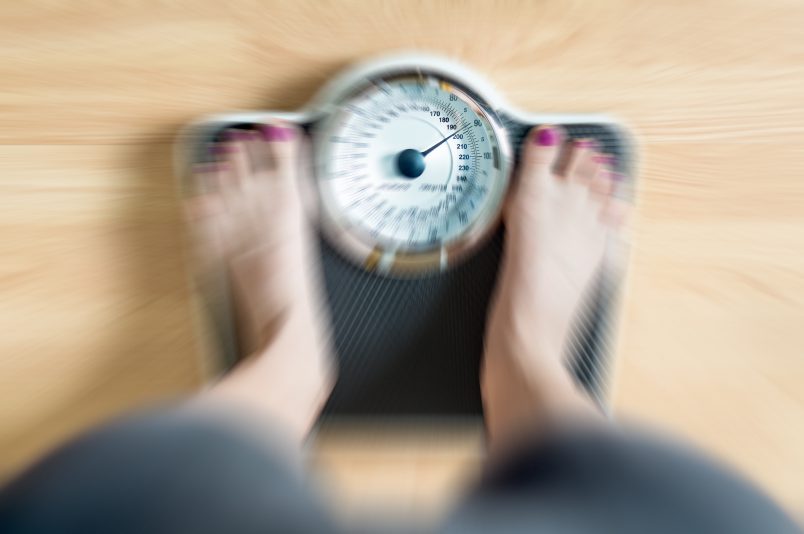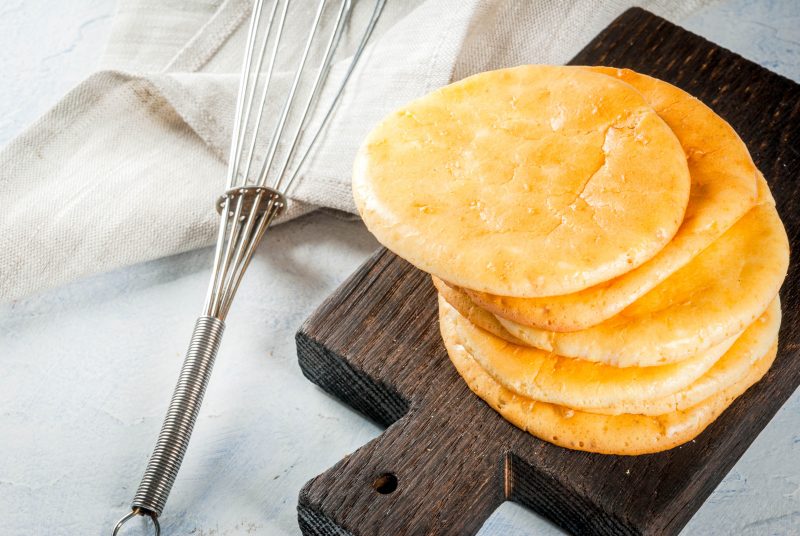Anytime you’re trying to lose weight, you will likely experience times when you lose consistently, and times when you plateau with weight loss. It can be frustrating when your plan works for a while, and then just seems to stop. But, rest assured, it happens to almost everyone, and we have answers for what to do if keto weight loss seems slow.
In fact, we believe you can re-start losing weight this week, and even lose 5-10 pounds by the end of the month. If you’re new to Keto Zone, we have resources to help you get started below.
Here are the reasons for weight loss plateaus, how to correct them, and how to get started on Keto Zone if you’re new.
Reasons Keto Weight Loss May Seem Slow
1. You’re Simply Eating Too Many Carbs and/or You’re Not in Ketosis
Even if you’re new to Keto Zone eating, you likely understand that you have to vastly reduce carbs. But, you may not know to what extent. And, you may not have a good way of tracking your carb intake.
You can learn to count every gram (most accurate), or you can simply start by omitting most of your carbohydrate foods (works well enough for many people). But, either way, there may be times when weight loss seems slow.
If this occurs, it’s time to really determine your carb intake and see you are in ketosis or not.
To start, get your total carbs to 25 grams of net carbs or less per day.Net carbs are total carbs minus fiber and sugar alcohols (like those in erythritol). Use this equation: Carbs – (Fiber + Sugar Alcohols) = Net Carbs.
Double-check and make sure you’re not missing any hidden carbs. Here’s a good list of hidden carbs.
Then, try testing your ketones. Not knowing if you’re in ketosis, and not losing weight is a source of unnecessary frustration. Instead, check your ketone levels with Ketone Test Strips and use them to adjust your diet and reach ketosis.
2. An Overload of Processed & Inflammatory Foods
Sure, you can hit your goal for net-carbs with really poor food choices. For example, you could eat nothing but processed low-carb foods and stick to 25 grams of net carbs.
But, this is not the best option for whole-body health. Your body needs healthy fats (not processed), healthy protein, greens and vegetables, anti-inflammatory foods like turmeric, ginger, omega-3s, and spices, and more.
For breaking weight loss plateaus and preventative health, it’s imperative that you eat real, nourishing wholesome foods and avoid processed ones as much as possible (1).
Take a look at the foods you’re eating…how many come with a food label? How many are single-ingredient fodos like meats, vegetables, and spices? Aim to get processed foods down to just 3-4 per day, and within these choices, choose the healthiest options with real-food ingredients that you can.
3. High Calories Despite Low Carbs
Cutting carbohydrates is often enough for most people to lose weight. However, if calories remain extremely high, like 1000-2000 more than what’s burned per day, you may experience slow weight loss or a plateau even while eating low-carb.
Luckily, this is an easy fix with Keto Zone. If you focus on reducing your net carbs, and then keeping protein to just 15% or so of your calories (just 35 grams protein per 1000 calories or so), it’s easy to keep total portions in control.
One great thing about eating high-fat foods for the majority of your calories is that they are natural portion-controllers.
When looking for high-calorie culprits, consider:
- Nuts and nut butters, believe it or not. Even though nuts are low-carbs, they are extremely calorie dense. If you’ve hit a plateau and you eat a lot of nuts, consider keeping nuts to no more than ½ cup per day. Addmore variety to your diet, including vegetables, to control calories (remember, 2 tablespoons of nut butter = ¼ cup nuts).
- Eating Out: Unfortunately, it can be tough to stay in the Keto Zone if you eat out often. It helps if you have a game plan to start. But, sometimes, even good Keto Zone restaurant choices have added carbs and high calories.
- Sauces and dressings: Believe it or not, sauces and dressing can add hundreds and hundreds of calories per meal. Take a look at any you add, and make sure the calories and/or carbs are not saboteurs.
4. Calories Are Too Restrictive
On the other hand, if you are not eating too few calories, you may stall your metabolism as well. This is not generally a longterm issue as low-calorie eating actually has a lot of benefits, but in the short-term it may stall week to week weight loss. Your body will continue to adjust throughout your weight loss journey. Study after study has shown that our bodies adapt to low-calorie eating.
The antidote?
Intermittent fasting.
If you eat for 8 hours per day and consume your daily fats and calories needed, and then fast for 16 hours per day, your body will likely start to lose weight (2) again. To add intermittent fasting, eat an early dinner and be done by 6 pm or 7 pm, fast through the night, only drink no-carb coffee when you wake (you can add MCT Oil Powder), and then delay your first meal until 10 am or 11 am. This schedule can help you incorporate intermittent fasting easily.
5. Other Lifestyle Factors are Sabotaging Your Health and Weight
Weight loss is not only about eating. It’s also about the health of your cells and body. Your weight loss may plateau if:
- You are sedentary throughout the day. Add exercise, including weight training and/or cardio, several times per week.
- You are not sleeping at least 7 hours per night. Sleep is vital to overall health, brain health, and a healthy body weight.
- You eat during the night either due to shift work, midnight snacking, or other reasons. Your body is not made to eat and process foods during the night. Following your circadian rhythms of wake and sleep if possible, can improve weight loss.
6. You’re Near Your Goal Weight
If you’ve got a lot of weight to lose, it will likely come off faster in the beginning. Once you near your goal weight, you’ll likely plateau more often.
Your body is designed to desire homeostasis. Your diet is requiring it to change, and as you do, it will fight you the more and more you change it. You’ll likely have to double down your efforts and have patience.
What’s more, ketones are highly effective during those first few months of ketosis. It’s sort of a “shock” to the system, and your body will likely lose weight fast. Keto will remain effective for the longterm but may take more work as you get closer to your goal.
Get Started with Keto Zone
If you’re new to Keto Zone, it’s good to have a solid plan to start.
If you are interested in our highly effective weight loss plan, you can start by joining our FREE Keto Zone 21-Day-Challenge. If you want more, check out the Keto Zone Starter Kit including Dr. Colbert’s Keto Zone Diet Book.
Bottom Line
Plateaus happen and are a natural occurrence in almost everyone’s weight loss journey. But, they are not the end or a failure. They are simply a step toward your success. Use our tips above, and those from real-life keto dieters later this week to break your plateau if keto weight loss seems slow.

















